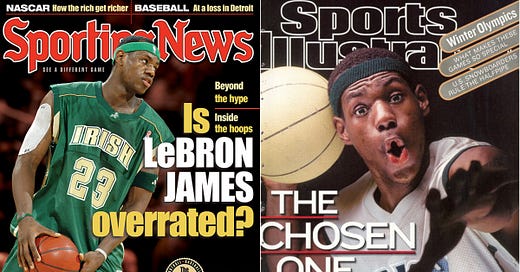The Origin Story Behind LeBron's Billion Dollar Relationship With Nike
If you are not a subscriber of Huddle Up, join 58,000 other professional athletes, business executives & casual sports fans that receive it directly in their inbox each morning — it’s free.


